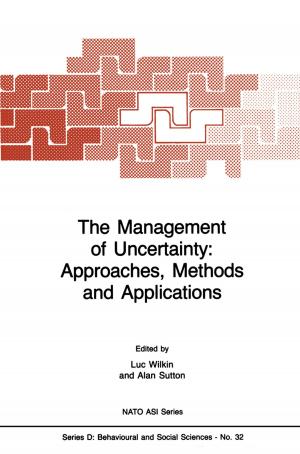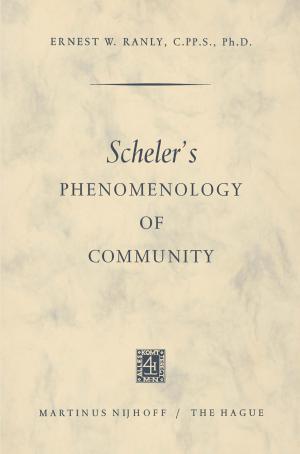Software Defined Radios
From Smart(er) to Cognitive
Nonfiction, Science & Nature, Science, Physics, Solid State Physics, Technology, Electronics, Circuits| Author: | Sofie Pollin, Michael Timmers, Liesbet Van der Perre | ISBN: | 9789400712782 |
| Publisher: | Springer Netherlands | Publication: | April 27, 2011 |
| Imprint: | Springer | Language: | English |
| Author: | Sofie Pollin, Michael Timmers, Liesbet Van der Perre |
| ISBN: | 9789400712782 |
| Publisher: | Springer Netherlands |
| Publication: | April 27, 2011 |
| Imprint: | Springer |
| Language: | English |
Many and ever more mobile users wish to enjoy a variety of multimedia services, in very diverse geographical environments. The growing number of communication options within and across wireless standards is accommodating the growing volume and heterogeneity in wireless wishes. On the other hand, advancement in radio technologies opening much more flexibility, a.o. through Software Defined Radios, opens up the possibility to realize mobile devices featuring multi-mode options at low cost and interesting form factors.
It is crucial to manage the new degrees of freedom opened up in radios and standards in a smart way, such that the required service is offered at satisfactory quality as efficiently as possible. Efficiency in energy consumption is clearly primordial for battery powered mobile terminals specifically, and in the context of growing ecological concerns in a broader context. Moreover, efficient usage of the spectrum is a growing prerequisite for wireless systems, and coexistence of different standards puts overall throughput at risk.
The management of flexibility risks bringing about intolerable complexity and hamper the desired agility. A systematic approach, consisting of anticipative preparing for smooth operation, allows mastering this challenge. Case studies show that already today, this approach enables smart operation of radios realizing impressive efficiency gains without hampering Quality-of-Service. In the future wireless communication scenes will be able to profit form the opening of the spectrum. Even smarter and cognitive behavior will become possible and essential.
Many and ever more mobile users wish to enjoy a variety of multimedia services, in very diverse geographical environments. The growing number of communication options within and across wireless standards is accommodating the growing volume and heterogeneity in wireless wishes. On the other hand, advancement in radio technologies opening much more flexibility, a.o. through Software Defined Radios, opens up the possibility to realize mobile devices featuring multi-mode options at low cost and interesting form factors.
It is crucial to manage the new degrees of freedom opened up in radios and standards in a smart way, such that the required service is offered at satisfactory quality as efficiently as possible. Efficiency in energy consumption is clearly primordial for battery powered mobile terminals specifically, and in the context of growing ecological concerns in a broader context. Moreover, efficient usage of the spectrum is a growing prerequisite for wireless systems, and coexistence of different standards puts overall throughput at risk.
The management of flexibility risks bringing about intolerable complexity and hamper the desired agility. A systematic approach, consisting of anticipative preparing for smooth operation, allows mastering this challenge. Case studies show that already today, this approach enables smart operation of radios realizing impressive efficiency gains without hampering Quality-of-Service. In the future wireless communication scenes will be able to profit form the opening of the spectrum. Even smarter and cognitive behavior will become possible and essential.















